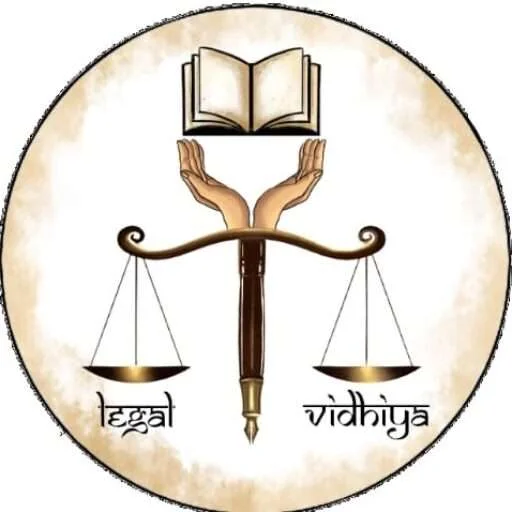Vijay Kant Thakur vs. State of Bihar: In the case of Simari P.S. Case no. 125, the petitioners questioned the ruling.
The Chief Judicial Magistrate of Darbhanga took cognizance of the offence under section 302/34 of the IPC. He called the petitioners to appear in court.
Chalitar Sahni, the respondent in this case, submitted a written complaint against the defendants in the D.M.C.H. Emergency Ward.
This case accuses 22 people. She claimed that at 7 pm, on the same day, those people were waiting at Kanshi Manihash Chowk.
The informant, his brothers Sita Ram Sahni and Inder Sahni arrived at the Chowk. So another accused Nathuni Sahni threw a knife blow at Sita Ram Sahni’s chest. Apparently, it was at the request of petitioner No. 1, Vijay Kant Thakur.
Initially, the police filed a chargesheet against Guletan and Guddu Sahni. The other two unnamed were also accused on 27 June 2003. They were Tetar and Pitambar Sahni. on 27 June 2003.
Furthermore, as the inquiry proceeded for the defendants, the magistrate called the four accused into the court. He called them after taking cognizance of the offence under Section 302/34 of the Penal Code.
At the conclusion of the investigation, the police submitted a final report in favor of the petitioners.
The magistrate scheduled the date of 17 August 2005 to review the police report. and summoned these two petitioners, along with Nathuni Sahni, to appear in court.
Moreover, the prosecution lodged a case against 22 named defendants, including the petitioners and some unknown individuals. After the investigation, the police filed a partial charge sheet on 27.06.2003, but they left the inquiry against the other accused open.
The judge, who is taking cognizance of Section 190 of the offences under Section 302/34 of the Penal Code, asked all four accused to come to court. The police did not send any other accused for trial and filed a final report.
What were the issues raised in the court case?
The two issues were raised which were, Under Section 190 of the Cr. P.C. Whether the Magistrate can differ from the PSO, in terms of the police report, and the process for taking cognizance in various offences, is it allowed for several sections? And the other one was, What are the powers of the Judicial Magistrate under Section 190 of the CrPC?
Also read : Apoorva Arora vs State (Govt. of NTC of Delhi): Supreme Court’s Landmark Decision
Disagreement of the Petitioners the Vijay Kant Thakur vs. State of Bihar case
The petitioners learned council was not so happy and strongly opposed the order given, an order which was not a final order. They used these points and made their case. The first point was that the magistrate did not have any right to summon the accused after once cognizance had been taken and the accused had been called to the trial. The second point was, that once cognizance is taken and the committal stage begins, the magistrate is not allowed to add more accused people to the list of accused people against whom proceedings have already been issued until Article 319 of the Cr.P.C. is reached. The final question was why the magistrate summoned only 2 petitioners when the same complaint was made against the other seventeen.
Their case depended on the decisions that were made in these cases- aj Kishore Prasad vs. State of Bihar & Anr. AIR 1996 SC 1931 and Kishori Singh and Ors. vs. State of Bihar & Anr. AIR 2000 SC 3725.
The respondent’s disagreement in the case
The counsel submitted the response by stating these facts- Summoning the petitioners to face trial on 17.08.2005 under section 302/34 of the Penal Code was completely justified. The magistrate’s authority to summon those accused against whom there is enough evidence to continue is unrestricted as long as the stage of Section 190(b) is still in effect. A preliminary charge sheet was filed against the four defendants by the police on June 27, 2003. Cognizance was taken by the magistrate against the four defendants as the charge sheet was filed against them and the investigation for the other accused was left open.
The judgement of the Supreme Court in the Thakur vs. of Bihar
According to the honourable court’s definition of the police officer’s unfettered right to examine a case, a court shouldn’t often become involved in the police investigation until and until the police investigation is biased. Under Section 173(2), the police may submit a single police report during an investigation, as well as multiple supplemental reports or charge sheets. However, it is usually preferable to submit a single police report in accordance with Section 173 of the CrPC.
Also read : Workmen of Dimakuchi Tea Estate Case vs. The Management Of Dimakuchitea Estate
FAQ
1. What was the case’s conclusion?
The Supreme Court confirmed that the magistrate had the right to summon the petitioners for trial under Section 190 of the Cr.P.C., provided that there was sufficient evidence against them.
2. What is the primary concern in the Vijay Kant Thakur vs. State of Bihar case?
The primary questions in this case are whether the magistrate could hold a trial based on a police charge sheet that was only partially completed and whether the magistrate had the right to summon the petitioners after taking cognizance of the matter.
3. What justification did the respondent offer for the magistrate’s ruling?
The defendant’s attorney argued that by summoning those accused against whom there was sufficient material evidence, the magistrate was operating within his authority.
